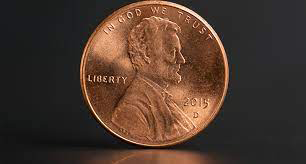Penny Stocks: High RiskWith0% Regret(Mostly)
Powered by A.I.B.E, your AI Co-Pilot serving top penny stock intel.
Because questionable decisions deserve exceptional technology.


Penny Stocks (PSTOCK) Market Open
Market Open
Start here. Next stop, MOON!
Best Penny Stocks
Penny Stocks with AI-Powered Insights
Alright, you risk-loving, thrill-chasing, "this stock's my golden first-class ticket to the moon" Kool-Aid drinkers—buckle up, because PennyStocks.com is about to donkey punch you in the G-spot…in a good way.
Let's be honest here—we're both consenting adults. Everyone knows that if Wall Street is the Vegas Strip, NASDAQ is The Cosmopolitan, and NYSE is The Bellagio, penny stocks would absolutely be Circus Circus. Sure, it's all high-risk, high-reward entertainment—but some places just feel better when you're losing.
Guess what? We're not your average penny stock hangout; we're not your run-of-the-mill Investors Hub. Think of us as Wall Street swagger mixed with a no-BS attitude, giving you real insights on what actually matters—and most of the time, it goes beyond the company itself. We deliver a true advantage, minus the suits and douchey attitudes.
Let's skip the fluff and spinning rims and dive straight into why PennyStocks.com is built different—kind of like your ex, but without the trauma and resentment.




UNLOCK PENNY STOCK MARKET DATA WITH CUTTING-EDGE AI TECHNOLOGY
Meet A.I.B.E (AI Bankroll Enhancer)
A.I.B.E is your free AI Penny Stock Co-Pilot—helping you find, research, & discover penny stock alerts, penny stock news, social sentiment, penny stock promotion, & more.
100 Free Penny Stock Prompts Daily
100 penny stock questions & research prompts daily. Ask about charts, rumors, filings, or trading patterns—when you run out, just come back tomorrow. No up-sells or hidden fees.
Real-Time Penny Stock Research
A.I.B.E hunts specifically for penny stock signals across the web, finding connections between news, filings, and social chatter that regular search engines can't piece together.
Focused Penny Stock Intelligence
A.I.B.E retains your entire penny stock research conversation—linking historical filings, price movements, news catalysts, & social sentiment across your AI chat session without context loss.
Penny Stock Document Intelligence Engine
Upload SEC filings, penny stock financial data, stock charts, news & more. A.I.B.E extracts key data points from your documents & is able to use them for context during your penny stock chats.
Total Penny Stock Market Mastery
PennyStocks.com provides AI research on penny stocks for those interested in a real chance at making money trading penny stocks-minus the BS!
Penny Stock Grandmaster
Penny stocks are a high-stakes chess match—and if you're not thinking three moves ahead, you're already losing. That's where A.I.B.E comes in. Forget staring at endless charts, searching for penny stock news, promotions and social sentiment, all while trying to connect the dots. With A.I.B.E, you ask real questions in plain English and get razor-sharp insights on trading patterns, market psychology, and active promotions at insane speed. A.I.B.E arms you with deep-dive data analysis, helping you research the complex world of penny stocks with crystal-clear vision. So, are you ready to master the penny stock game, or just following random penny stock newsletters without a plan?
Penny Stock Grandmaster
Penny stocks are a high-stakes chess match—and if you're not thinking three moves ahead, you're already losing. That's where A.I.B.E comes in. Forget staring at endless charts, searching for penny stock news, promotions and social sentiment, all while trying to connect the dots. With A.I.B.E, you ask real questions in plain English and get razor-sharp insights on trading patterns, market psychology, and active promotions at insane speed. A.I.B.E arms you with deep-dive data analysis, helping you research the complex world of penny stocks with crystal-clear vision. So, are you ready to master the penny stock game, or just following random penny stock newsletters without a plan?

Penny Stock News
Not all press releases are created equal, in fact some penny stock news releases & articles are pure penny stock scams, while others contain real penny stock news & insights. A.I.B.E cuts through the noise, pump, and identifies what's FACT and what's CAP! No more getting overwhelmed by PR spin or cleverly worded nothing-burgers. Stay connected to real-time news feeds from Yahoo Finance, OTCMarkets.com, SEC.gov, FINRA.org & more—filtered by an AI that helps identify the difference between promotional language and substantive information. In penny stocks, recognizing content quality early can provide an important research advantage.
Penny Stock News
Not all press releases are created equal, in fact some penny stock news releases & articles are pure penny stock scams, while others contain real penny stock news & insights. A.I.B.E cuts through the noise, pump, and identifies what's FACT and what's CAP! No more getting overwhelmed by PR spin or cleverly worded nothing-burgers. Stay connected to real-time news feeds from Yahoo Finance, OTCMarkets.com, SEC.gov, FINRA.org & more—filtered by an AI that helps identify the difference between promotional language and substantive information. In penny stocks, recognizing content quality early can provide an important research advantage.

The Wild West of Trading
Welcome to Penny Stocks, the Wild West of trading! Penny Stock traders, investors both real and fake, along with bot armies, and shady promoters trying to cash in on fake hype, have made it very hard to determine what's real or not. Lucky for you, there's a new sheriff in town & he goes by the name A.I.B.E! Our AI penny stock chat co-pilot scan social conversations to help identify potential bots, paid promotional accounts, and coordinated pump campaigns across the social landscape. Get real-time sentiment insights from X, Reddit, Facebook, Discord, TikTok, Instagram, Telegram, and WhatsApp—analyzed by AI designed to help distinguish between organic discussions and potential promotional activity. Don't navigate the penny stock social landscape alone!
The Wild West of Trading
Welcome to Penny Stocks, the Wild West of trading! Penny Stock traders, investors both real and fake, along with bot armies, and shady promoters trying to cash in on fake hype, have made it very hard to determine what's real or not. Lucky for you, there's a new sheriff in town & he goes by the name A.I.B.E! Our AI penny stock chat co-pilot scan social conversations to help identify potential bots, paid promotional accounts, and coordinated pump campaigns across the social landscape. Get real-time sentiment insights from X, Reddit, Facebook, Discord, TikTok, Instagram, Telegram, and WhatsApp—analyzed by AI designed to help distinguish between organic discussions and potential promotional activity. Don't navigate the penny stock social landscape alone!

Tracking Penny Stock Promotion
Penny stocks are heavily influenced by promotions, price action, and market activities—tracking these factors is essential for thorough research. A.I.B.E is able to seek out & find these 'red flags' and help monitor live penny stock promotions, price history, corporate news, SEC/FINRA alerts, and more to provide comprehensive information. Red Flag Liquidity Tracker – Our AI penny stock chat co-pilot helps identify unusual trading patterns and potentially suspicious activity by analyzing historical and current market data.By tracking both legitimate market movements and potential promotion campaigns in real-time, our platform provides information to support your independent penny stock research and analysis.
Tracking Penny Stock Promotion
Penny stocks are heavily influenced by promotions, price action, and market activities—tracking these factors is essential for thorough research. A.I.B.E is able to seek out & find these 'red flags' and help monitor live penny stock promotions, price history, corporate news, SEC/FINRA alerts, and more to provide comprehensive information. Red Flag Liquidity Tracker – Our AI penny stock chat co-pilot helps identify unusual trading patterns and potentially suspicious activity by analyzing historical and current market data.By tracking both legitimate market movements and potential promotion campaigns in real-time, our platform provides information to support your independent penny stock research and analysis.

Transparency First
No hidden tricks—here's exactly how PennyStocks.com keeps the lights on while remaining 100% FREE!
Penny Stock Promotions
Let's be real—penny stock promotion exists and isn't going away anytime soon. We're not against promotions. We're against how 90% of them are conducted. Instead of hiding in the shadows and hustling up "interest" at any cost, we keep it 100% compliant & transparent. We run fully disclosed promotions that meet all regulatory requirements, praising the potential but NEVER downplaying the risks. While other promoters might conveniently forget to mention the downsides, we believe you deserve the complete picture—good, bad, & everything in between.
On-Site Ad Placement
Most financial sites and penny stock platforms bombard you with sketchy trading system ads and get-rich-quick garbage that makes your browser cry. We take a different approach—using a combination of Google Adsense and select paid client placements. While we don't individually vet every Google ad, we monitor for quality and maintain standards for direct advertisers who want placement on our site. Yes, we make money when you click, but we prioritize your browsing experience over cramming in maximum ads regardless of relevance.
Sentiment Data Sales
We monitor & analyze activity on PennyStocks.com, tracking user sentiment, engagement patterns, and interest in specific penny stocks & financial topics. This creates valuable aggregated data that brokerage firms & research firms pay for. WE DO NOT SELL your personal information or individual activities. Your privacy stays intact while these firms pay to understand what the penny stock community is focusing on. Think of it as Wall Street finally subsidizing the tools you use to research their markets, while remaining anonymous.